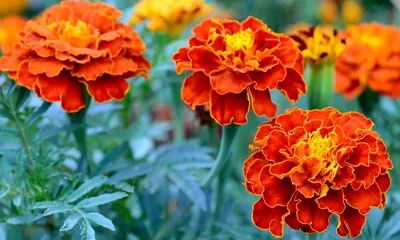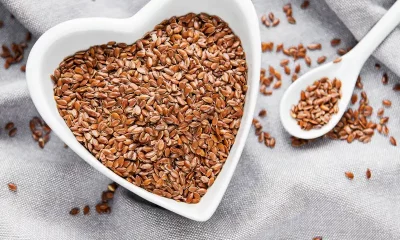Health
Benefits of mango butter

Discover the benefits of mango butter.
Mango butter has gained ground over other similar products, such as cocoa or shea butter. It has a high nutrient content.
Mango butter is one of the different cosmetic products that are made from this fruit. It constitutes a great contribution to nourishing the skin and hair.The benefits of mango butter do not end there. Many claims that this product helps protect against sun damage and also has a significant effect on stretch marks.
Mango butter is obtained from the seed of the fruit. It is made by cold pressing the seed until a creamy substance is obtained. The result is a semi-solid-looking paste that melts on contact with the skin.
Mango butter and its characteristics
Mango butter is a rich source of mangiferin, a substance that has antioxidant properties. This helps reduce the risk of cell damage. Plus, mangoes are packed with fiber, vitamins, and minerals.
This fruit also has folic acid, potassium, calcium, and beta-carotene. Among the vitamins it contains are several that are decisive for the health of the skin, such as C and E. It has antioxidant, emollient, protective, softening, soothing, and regenerating properties.
A study published in 2016 highlights the profiles of fatty acids present in mango butter. Among these are the oleic, the linoleic, and the stearic. This makes it suitable for replacing traditional products, such as cocoa butter.
It also contains phytosterols, substances that help improve the skin’s lipid barrier and microcirculation. Likewise, it is a good source of squalene, a substance that acts as a skin regenerator.
Benefits of mango butter
The benefits of mango butter are many. Let’s start by saying that a study done in 2008 found that this product had an extraordinary performance in moisturizing the skin. It was shown to help reduce scars and cracks.
The mango has many properties associated with health. For butter, its seeds are cold-pressed.
Promotes collagen production
The high concentrations of vitamin C in mango butter stimulate collagen production. This compound protects bones, supports joints, and helps structure skin. The body gradually stops producing it with age.
Prevents signs of aging
Mango butter, in addition to vitamin C, also contains high levels of vitamin E. Both help protects the skin from environmental damage caused by pollution and external factors, such as blue light from screens.
Protects from solar rays
Another benefit of mango butter is its high content of vitamin A. This helps repair damage caused by sun exposure. A 2012 investigation indicates that the combination of this vitamin, along with C and E, is an efficient protection against sun damage.
Does not clog pores
Unlike other products, mango butter provides an efficient barrier for the skin, but without clogging the pores. This product is a light oil that melts easily and does not leave a greasy feel. The best thing is that it works for all skin types.
Strengthens the hair
The fatty acids in this butter act on the hair, creating a seal and protecting it from environmental damage. It goes very well for those whose hair is damaged by the continuous use of a dryer or iron. It also helps prevent dandruff.
It is skin-friendly
It is considered a skin-friendly compound, since its components do not irritate, even on sensitive skin. Likewise, it has a soft fragrance, ideal for those who are very susceptible to strong aromas.
Ways to use mango butter
It is not common to find mango butter in its pure state. In most cases, it is part of different cosmetic products, such as creams, hair treatments, massage bars, lip balms, and soaps.
If it is in its pure state, it can be applied to the skin without any problem. Simply take an amount equivalent to a teaspoon, rub your hands together and place it on the face or body, massaging gently.
Also, it can be used as a hair mask. It is applied from the roots to the tips, left to act for a period of between 15 and 20 minutes, and then removed with plenty of water.
Some combinations can be very effective, such as the following:
•With vegetable oils of watermelon or macadamia, as firm.
•With wheat germ, avocado, olive, or almond oils to treat dryness.
•With argan, rosehip, evening primrose, or borage oils to combat the signs of aging.
•With castor oil to increase hair shine.
Avocado oil can be combined with mango butter to treat dry skin.
How to get mango butter
It is difficult to make a good amount of mango butter at home. Tools are required to do a cold press and these are almost always for industrial use.
However, this product can be worked at home, mixing it with essential oils:
•Take the mango bone and carefully cut it in half. Inside is the seed that is shaped like a nut. take it out
•Crush the seed very well in a mortar, mixing it with the essential oil of your choice.
•Put the mixture in a water bath for 3 hours, stirring continuously.
•Pour the content into a glass jar, cover it, and leave it in a dark place for 7 days.
After that period, it is ready to use. It is not easy to find pure mango butter on the market. However, there may be in some health food stores.
Other interesting facts about mango butter
Mango butter should be stored in a place free of moisture and protected from sunlight. Ideally, the temperature should be low and, in any case, not exceed 30 degrees Celsius. In this way, it can be kept for up to 6 months.
Some people may have an allergic reaction to this product. If any irritation occurs after application, use should be discontinued. It is best to do a patch test before using it.
People who have acne should check with their doctor before putting mango butter on their skin. In most cases, there is no problem, but there are specific conditions in which the product can be counterproductive.
Health
10 Benefits of charcoal soap and side effects

Table of Contents
Health
10 Benefits of long bell peppers

Discover the 10 health benefits of long bell peppers.
The long peppers may sound unfamiliar to some, but not in the ears of the Javanese. In Java, it is also known as Javanese pepper, with the scientific name of Piper Retrofractum Vahl.
It is considered as a spice and is commonly used for jamu, which is an Indonesian traditional herbal drink, hence its nickname is “cabe jamu” or jamu pepper.
If you want to learn more about long peppers, you are absolutely on the right track! For your information, long peppers grow at a maximum altitude of 600 m with 1,259 mm/year of rain. Anyway, what exactly is a long pepper?
Long peppers are also known as Balinese pepper or Indian pepper, following their original roots in South Asia, particularly India and Sri Lanka.
In India, long peppers are called ‘pippali’. Long peppers have four main functions, especially as a home remedy, cooking ingredient, medicinal herb, and catalyst to enhance the effects of other herbs.
The benefits of Javanese long peppers are somewhat similar to the health benefits of Indian long peppers.
Just as their scientific name suggests, long peppers contain piperine. Piperine is an alkaloid that works as a stimulant for poor blood circulation. Piperine is also found in black pepper and is also responsible for making both of them spicy.
Now here is the main question; Do long peppers have other uses besides being spices and a cooking ingredient? Yes, it does, and here are the health benefits of long pepper.
10 health benefits of long bell peppers
1.- Good for liver ailments
• Liver disease arises from our habit of indulging in unhealthy junk foods.
• At the end of the day, the liver becomes overworked.
• Long bell peppers balance the liver’s workload by removing toxins that have built up in the liver and that have been produced by digesting these types of foods.
• Here are also the best quick way to detox the liver after several years of drinking.
2.- Helps to lose weight
• The long pepper can burn fatty acids similar to other types of pepper without any side effects.
• In fact, it is considered a safer and healthier alternative compared to its clinical counterparts.
3.- Reduces the risk of diabetes
• Like the health benefits of red rice for diabetics, long bell peppers help alleviate diabetes by regulating the rate of glucose released into the blood system.
• Long peppers also stimulate insulin production.
• That is the main reason why long pepper is highly recommended for diabetic patients.
4.- Decreases bacterial infection
• The risk of bacterial infection may incline as the daily temperature increases.
• Unhygienic food, as well as unsterile water, can be prone to bacterial infection, causing an upset stomach.
• Long peppers can be used to counter these occurrences.
5.- Serves as a cough treatment
Long peppers treat a cough by making it a simple remedy. This is how you do it:
Step 1: Take 1 to 2 grams of the spice and fry it with a little ghee. Ghee is a kind of Indian butter.
Step 2: Bring it in while it cools.
If ghee is not available, you can use honey instead.
6.- Relieves indigestion
• The content of long peppers is capable of curing digestive problems.
7.- Decrease fever
• The antiseptic and antiseptic properties of long pepper can reduce fever or relax the throat.
• You can easily reduce a fever by mixing long pepper with a hot bowl of soup.
8.- Relieves toothache
• You can also cure a toothache by making a paste with pepper, salt, and water.
9.- Cure diarrhea
• Diarrhea can be cured by consuming a long pepper soup.
10.- Relieves asthma
• Long peppers are an alternative to relieve occasional asthma attacks and other asthma symptoms.
• However, you should not use it as a substitute for respiratory medicine.
How to use long peppers for traditional cures
About the previous pointers on the health benefits of long pepper, here are the simple recipes to make your long pepper remedy.
1.- To lower the fever
• Step 1 – Prepare 3g of dried long peppers
• Step 2 – Smooth until it reaches its softest state.
• Step 3: Infuse with hot water and consume.
• Despite its hot taste, it is suitable for both children and adults.
2.- It is a cure for toothache
• Step 1 – Prepare 3 long pepper leaves
• Step 2: squash them, but not to their smoothest shape.
• Step 3: prepare it in warm water
• Step 4: Use the gargle formula. Do it regularly until the toothache is completely gone.
3.- To overcome «Masuk Angin»
Masuk angin is an Indonesian term to describe the uneven distribution of gases within the body characterized by cold-like symptoms.
It has no direct translation into English, and no specific knowledge of this ‘disease’, therefore making ‘masuk angin’ is a large loose term. Long peppers can be treated ‘masuk angin’ by following this simple formula:
• Step 1 – Prepare 3g of long peppers, some brown sugar, ginger, and “temulawak” (Curcuma Zanthorrhiza).
• Step 2 – Boil until everything is softened and add warm water.
• Step 3 – Drink that formula while it’s still hot.
4.- Prevents abdominal spasm
• Step 1: Take 3 long pepper leaves and add a glass of water.
• Step 2: Boil both of them fully and let them cool for a while.
• Step 3: consume completely.
5.- Clean the postpartum ovary
• Step 1: Prepare 3 grams of long pepper roots.
• Step 2: Add warm water and bring to a full boil.
• Step 3 – Filter the water when you are done.
• Step 4: Consume the boiled water until done. It is suggested to consume it while it is still hot.
Those are just the healthy creations you can make with long bell peppers. The recipes are not proprietary so you can easily adjust them to better suit your preferences or requirements.
However, it is still highly recommended that you follow exactly what is written above. In addition to the long bell pepper uses listed above, there will be more below, however, the ones below are not specifically categorized by disease.
Generic long pepper recipe
Step 1 – Boil 150cc of water.
• Step 2 – Make it with 4 grams of pepper powder.
• Step 3: Consume while hot to get your maximum benefit.
If there are still long pepper powders left, you can also use them like this:
• Fill it inside the capsules for consumption at any time.
• Apply the powders directly to the affected area for toothache.
• Use it to treat swollen gums.
• In addition to health, long peppers are equally useful for planting and soil fertility.
• Thirty-eight uses of long peppers can be obtained by using them in a “jamu” or a traditional herbal drink, which has the potential to cure practically everything but the insecticide.
• Long pepper does not work with insecticide because it kills the reaction of the insecticide inside the plants.
Those are just the top long pepper health benefits that may sound unfamiliar to you, especially among the youngest these days. Either way, hope it helps!
Health
Ozempic for weight loss

Table of Contents
-

 Benefits4 months ago
Benefits4 months agoThe Benefits of Joining Gym Lumolog – Improve Your Fitness & Health
-

 Food1 year ago
Food1 year ago10 + Benefits of carrot juice and side effects
-

 Health1 year ago
Health1 year ago50 Super Healthy (And Very Often Cheap) Foods
-

 Health1 year ago
Health1 year ago5 Shocking health benefits of kinkeliba and side effects
-

 Health1 year ago
Health1 year ago15 health benefits of soursop leaves tea and side effects
-

 Food1 year ago
Food1 year ago8 shocking benefits of leek juice and side effects
-

 Health1 year ago
Health1 year ago15 Benefits of lipton tea and side effects
-

 Health1 year ago
Health1 year agoBenefits of guava leaves Sensually












